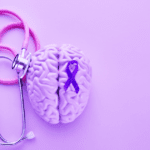
Exploring Today’s Alarming Mental Health Statistics and the Rise of Mental Health Disorders
January 16, 2024
Unlocking Inner Peace: A Guide to Enhancing Mental Health
January 16, 2024In this article, we will explore the effectiveness of Cognitive Behavioral Therapy (CBT) at First City Mental Health Center.
Anxiety and depression are two of the most common mental health disorders, affecting millions of people worldwide. They can be debilitating and have a significant impact on an individual's daily life, hindering their ability to function normally.
Fortunately, there are effective treatments available for these conditions, one of which is Cognitive Behavioral Therapy (CBT). CBT is a widely used psychotherapy approach that helps individuals manage their thoughts and behaviors to improve their mental well-being.
At First City Mental Health Center, we specialize in providing CBT for individuals struggling with anxiety and depression. In this blog post, we will explore the effectiveness of CBT in treating these disorders and how it can help you overcome your symptoms.
What is Cognitive Behavioral Therapy (CBT)?
CBT is a form of talk therapy that focuses on identifying and changing negative patterns of thinking and behavior that contribute to anxiety and depression. It is based on the idea that our thoughts, feelings, and behaviors are interconnected; thus, by changing our thoughts or behaviors, we can also change how we feel.
During CBT sessions, therapists work with clients to identify unhelpful thought patterns or beliefs that may be causing distress. These could include catastrophizing (assuming the worst-case scenario), black-and-white thinking (seeing things as either all good or all bad), or overgeneralization (drawing conclusions from one isolated incident).
Once these thought patterns are identified, therapists help clients challenge them through evidence-based techniques such as cognitive restructuring and behavioral experiments . By doing so, individuals can develop more adaptive and realistic ways of thinking, leading to improved emotional well-being.
Additionally, CBT also involves teaching practical skills to help individuals cope with their symptoms. These may include relaxation techniques, problem-solving skills, and assertiveness training. The goal is to equip clients with the tools they need to manage their symptoms independently in the long term.
Effectiveness of CBT in Treating Anxiety
Research has consistently shown that CBT is an effective treatment for anxiety disorders. A meta-analysis of 79 studies found that CBT was significantly more effective than placebo or no treatment for various anxiety disorders, including generalized anxiety disorder (GAD), panic disorder (PD), social anxiety disorder (SAD), and specific phobias.
Another study compared the effectiveness of CBT with medication in treating GAD and found that both treatments were equally effective at reducing symptoms. However, the effects of CBT were longer-lasting than those of medication, with fewer relapses after treatment ended.
One reason for the success of CBT is its focus on addressing the underlying thoughts and beliefs that contribute to anxiety. By challenging these negative thought patterns and developing more adaptive ways of thinking, individuals can learn to manage their symptoms more effectively.
Effectiveness of CBT in Treating Depression
CBT has also been shown to be an effective treatment for depression. A meta-analysis of 53 studies found that CBT was significantly more effective than no treatment in reducing symptoms of depression. It was also found to be as effective as medication in the short term and more effective in the long term.
Furthermore, a study comparing the effectiveness of CBT with antidepressant medication found that both treatments were equally effective at reducing symptoms. However, CBT had a lower relapse rate after treatment ended.
One reason for the effectiveness of CBT in treating depression is its focus on changing negative thought patterns and behaviors associated with the disorder. By challenging these patterns and developing more positive ways of thinking, individuals can break out of their cycle of negative thoughts and emotions.
CBT is a highly effective treatment for anxiety and depression. Its focus on addressing underlying thought patterns and behaviors makes it an especially helpful approach for managing these disorders in the long term.
At First City Mental Health Center, we offer individualized CBT sessions tailored to each client's specific needs. Our experienced therapists are trained in evidence-based techniques to help you manage your symptoms and improve your overall well-being.
Overview of Anxiety and Depression
Anxiety and depression are two of the most common mental health disorders, affecting millions of people worldwide. These conditions can have a significant impact on an individual's daily life, making it challenging to function normally and enjoy activities that were once pleasurable.
What is Anxiety?
Anxiety is a natural response to stress or danger, often referred to as the "fight or flight" response. It is a feeling of fear, apprehension, or worry about something that may happen in the future. However, when this anxiety becomes excessive, persistent, and difficult to control, it can interfere with an individual's ability to carry out daily activities.
Anxiety disorders include generalized anxiety disorder (GAD), panic disorder, social anxiety disorder (SAD), specific phobias, and post-traumatic stress disorder (PTSD). Each type of anxiety disorder has its unique symptoms and triggers.
What is Depression?
Depression is a mood disorder characterized by feelings of sadness, hopelessness, loss of interest in activities once enjoyed, changes in appetite and sleep patterns, difficulty concentrating, irritability or anger outbursts, fatigue or loss of energy. It affects how an individual thinks and behaves and can lead to various emotional and physical issues.
There are several types of depression:
- Major Depressive Disorder: This involves persistent depressive episodes that last for at least two weeks.
- Persistent Depressive Disorder: This type involves less severe symptoms but lasts for at least two
Importance of Seeking Treatment
Anxiety and depression are serious mental health disorders that can significantly affect an individual's daily life, relationships, and overall well-being. If left untreated, they can have a negative impact on various aspects of one's life, including physical health, work performance, and social interactions.
Untreated anxiety and depression can lead to chronic stress, which can weaken the immune system and make a person more susceptible to illnesses. It can also cause sleep disturbances, fatigue, headaches, digestive problems, and other physical symptoms. In terms of work or school performance, these conditions may result in decreased productivity due to difficulty focusing or lack of motivation. Furthermore, individuals with untreated anxiety and depression may isolate themselves from friends and family or avoid social situations altogether.
If you or someone you know is struggling with anxiety or depression, First City Mental Health Center is here to help. With a commitment to providing personalized care and evidence-based treatments, this center is dedicated to helping individuals overcome their mental health challenges and live fulfilling lives.
Contact First City Mental Health Center today if you or someone you know needs assistance in overcoming drug and alcohol and/or mental health challenges. 877-595-3330






